Are you ready to take the leap into the world of chemical engineering? Crafting a compelling internship application letter can set you apart from the competition and showcase your passion for the field. In this article, we will guide you through creating a standout letter that highlights your skills, experiences, and enthusiasm. So, let's dive in and discover how to make your application shine!

Personal and Contact Information
An internship application for a chemical engineering position requires a concise introduction of the candidate's personal and contact information. Personal details include the candidate's full name, which acts as the primary identifier. The contact information must provide a functional email address, such as name@example.com, ensuring swift communication with potential employers. Additionally, a mobile phone number formatted according to the local numbering plan (e.g., (123) 456-7890 for the United States) is crucial for quick responses. Including a professional LinkedIn profile link can further enhance credibility. Lastly, the candidate's current address, detailing the city (e.g., San Francisco), state (e.g., California), and zip code (e.g., 94103), provides context for potential relocation considerations by the employer.
Recipient's Details and Salutation
Chemical engineering internships require applicants to showcase their technical skills and passion for the field. A well-tailored application letter should begin with the recipient's details, typically including the employer's name, job title, company name, and address. This information sets a professional tone. A respectful salutation, such as "Dear [Recipient's Name or Hiring Manager]," follows the details, establishing a direct and courteous connection with the reader. Engaging these elements effectively can capture the attention of potential employers in the competitive field of chemical engineering.
Introduction and Purpose of Application
Aspiring chemical engineers seek internship opportunities to gain practical experience in the industry. The chemical engineering field, characterized by its focus on process design, optimization, and safety, requires hands-on learning to complement theoretical knowledge acquired in academic settings. Internships, particularly at prestigious companies such as Dow Chemical or BASF, provide valuable insights into real-world applications of chemical principles. This experience is essential for understanding the intricacies of chemical processes, such as distillation and reaction engineering, and developing skills in problem-solving and teamwork relevant to the dynamic environment of chemical manufacturing and research.
Relevant Skills and Academic Background
Emerging professionals in chemical engineering often possess a robust academic foundation, typically holding a Bachelor's degree from prestigious institutions, such as the Massachusetts Institute of Technology (MIT) or Stanford University. Core competencies may include proficiency in process design, thermodynamics, and reaction engineering, alongside hands-on experience with simulation software like Aspen Plus and MATLAB. Students frequently engage in research initiatives, such as those at the American Institute of Chemical Engineers (AIChE), enhancing their analytical and problem-solving abilities. Additionally, participation in internships at prominent companies, including Dow Chemical or BASF, often cultivates industry-relevant skills, promoting teamwork and effective communication within multidisciplinary teams. These experiences furnish candidates with practical knowledge, preparing them for future roles in optimizing manufacturing processes or developing sustainable chemical solutions.
Enthusiasm and Future Contributions
As a passionate chemical engineering student at the University of California, Berkeley, I am eager to apply my theoretical knowledge and hands-on experience in a practical internship setting. My coursework has equipped me with a solid understanding of essential concepts such as thermodynamics, fluid mechanics, and process design, and I have engaged in projects that involved designing a sustainable process for biodiesel production, thereby honing my analytical skills. I am particularly interested in areas such as materials science and renewable energy, striving for innovative solutions to global challenges like climate change and energy sustainability. I am excited about the possibility of contributing to your team's ongoing projects focused on sustainable development through advanced chemical processes and eager to learn from industry experts, ultimately preparing me for a successful career in chemical engineering.
Letter Template For Internship Application Chemical Engineering Samples
Letter template of internship application for chemical engineering students
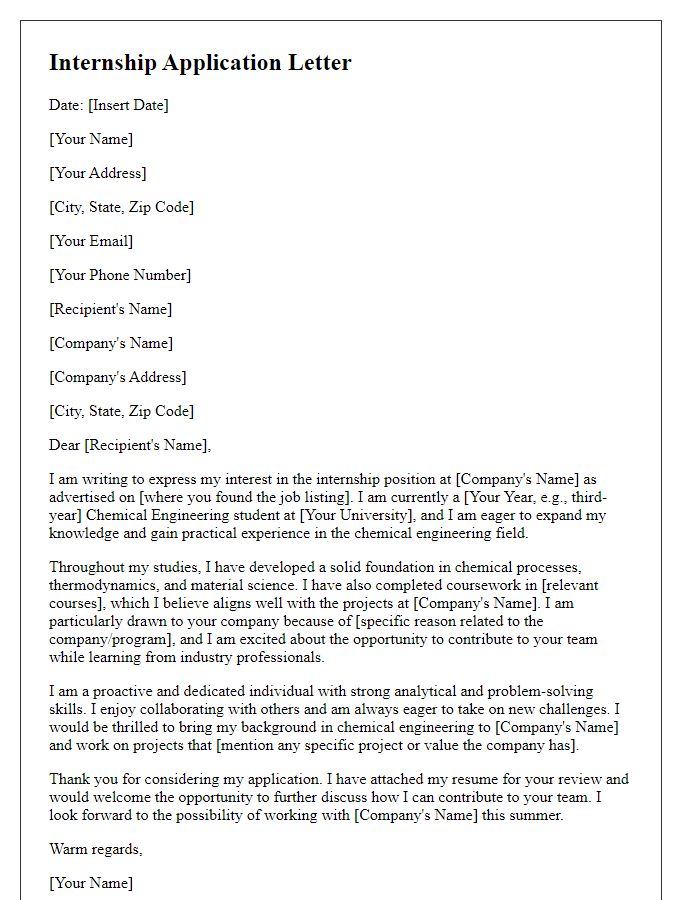
Letter template of summer internship application in chemical engineering
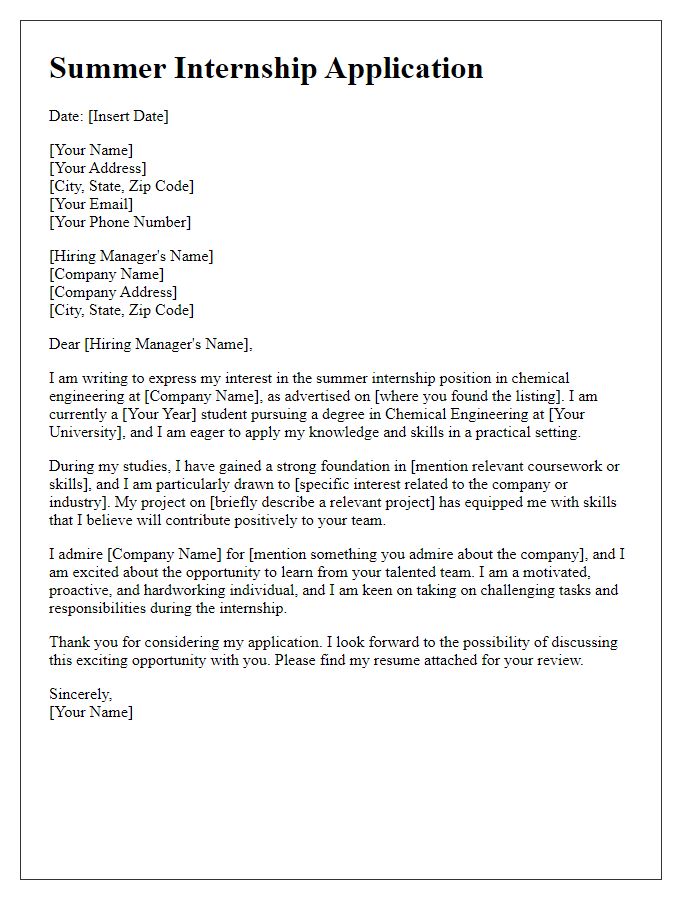
Letter template of chemical engineering internship application for recent graduates
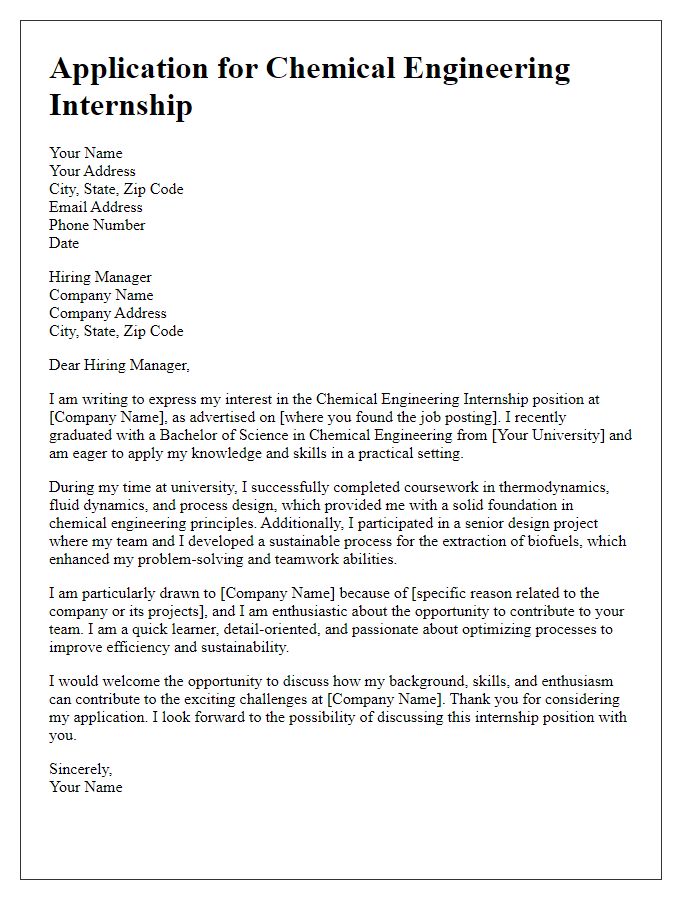
Letter template of internship application for chemical engineering position
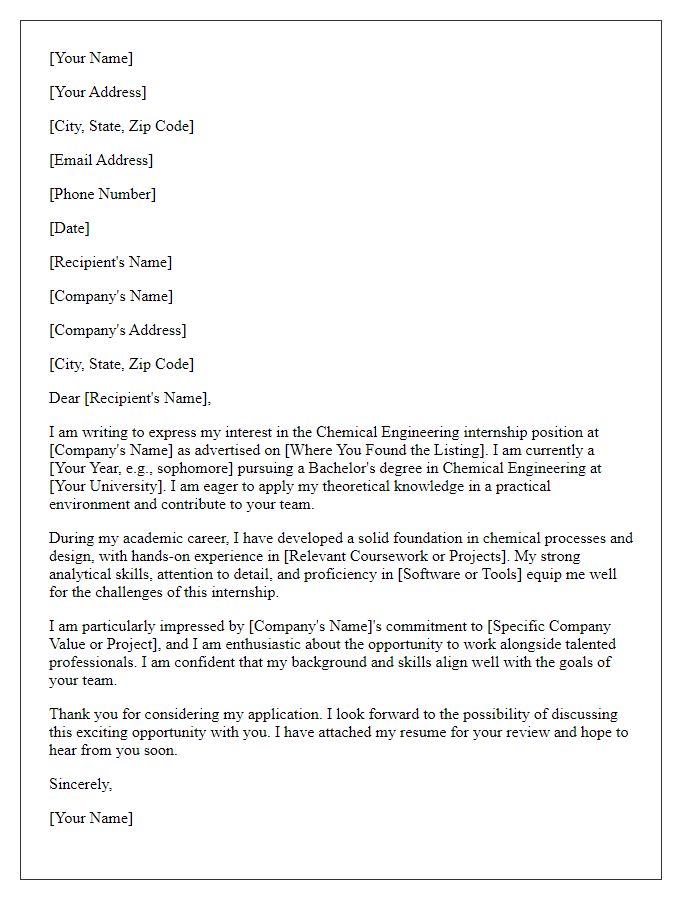
Letter template of application for chemical engineering research internship
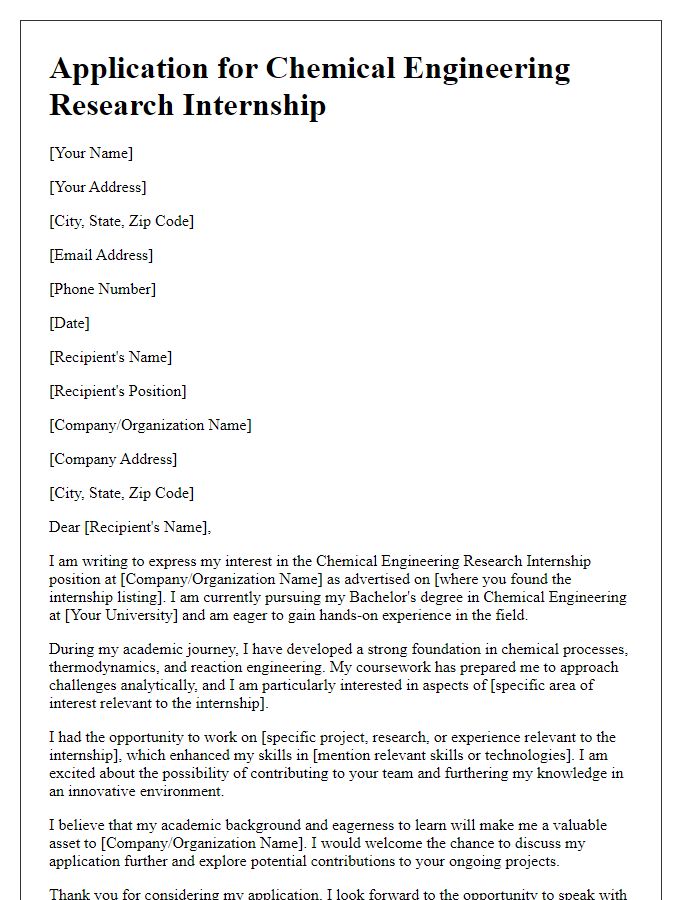
Letter template of formal internship application in chemical engineering field
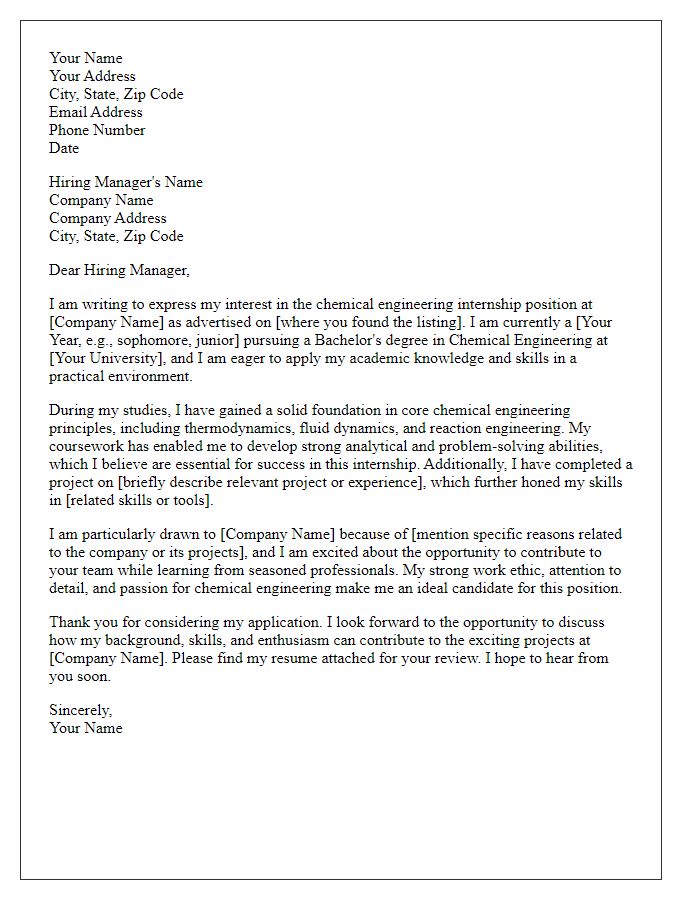
Letter template of undergraduate internship application for chemical engineering
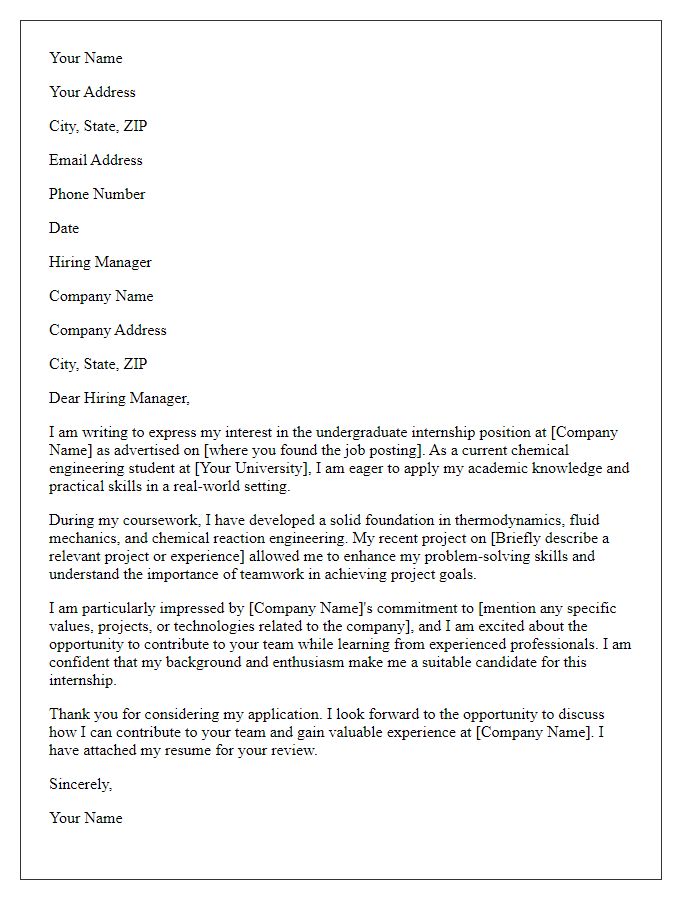
Letter template of application for industrial internship in chemical engineering
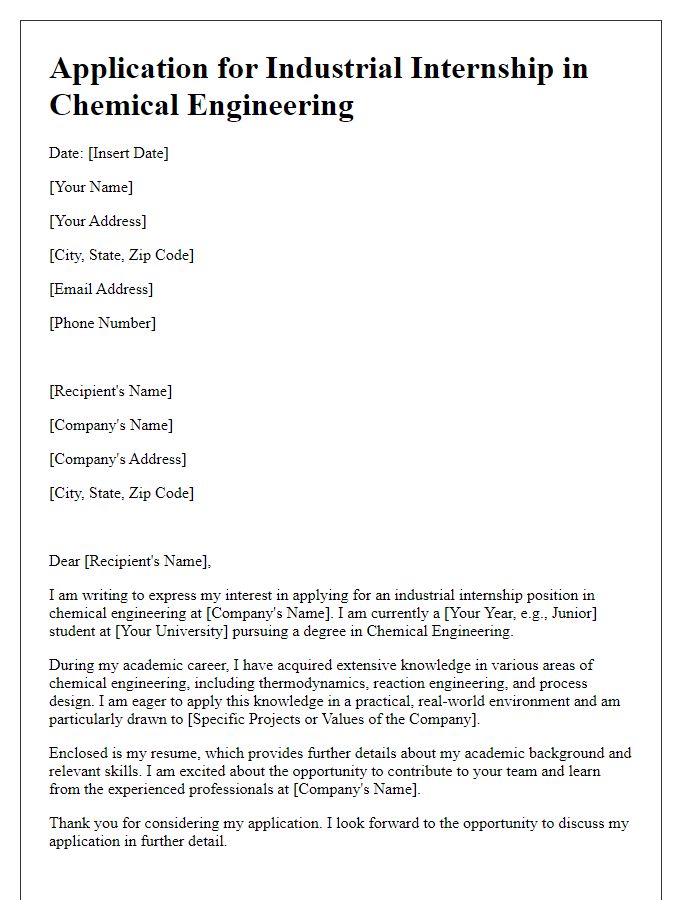
Letter template of chemical engineering internship application for advanced students
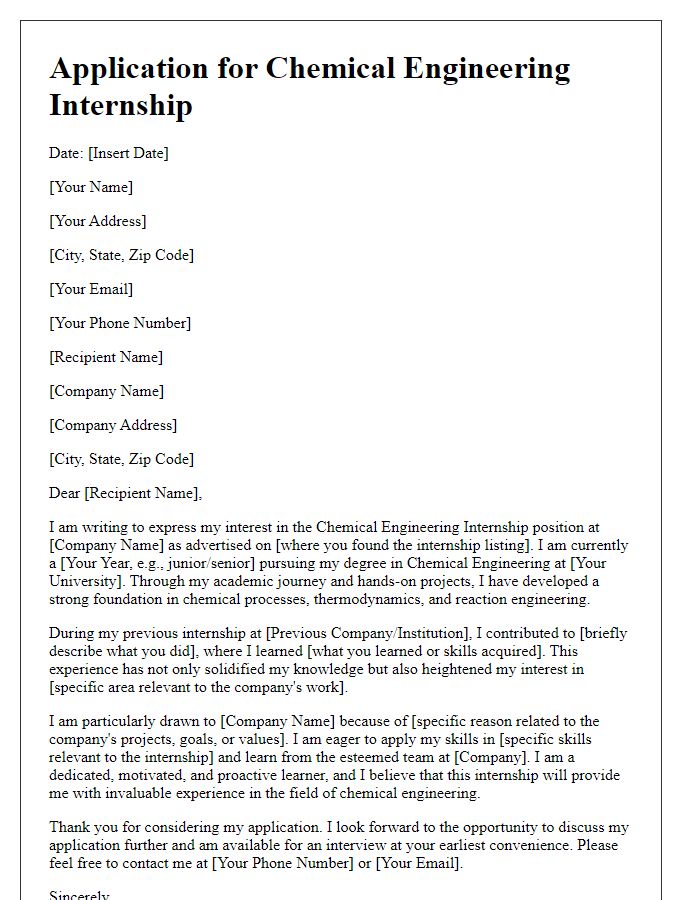

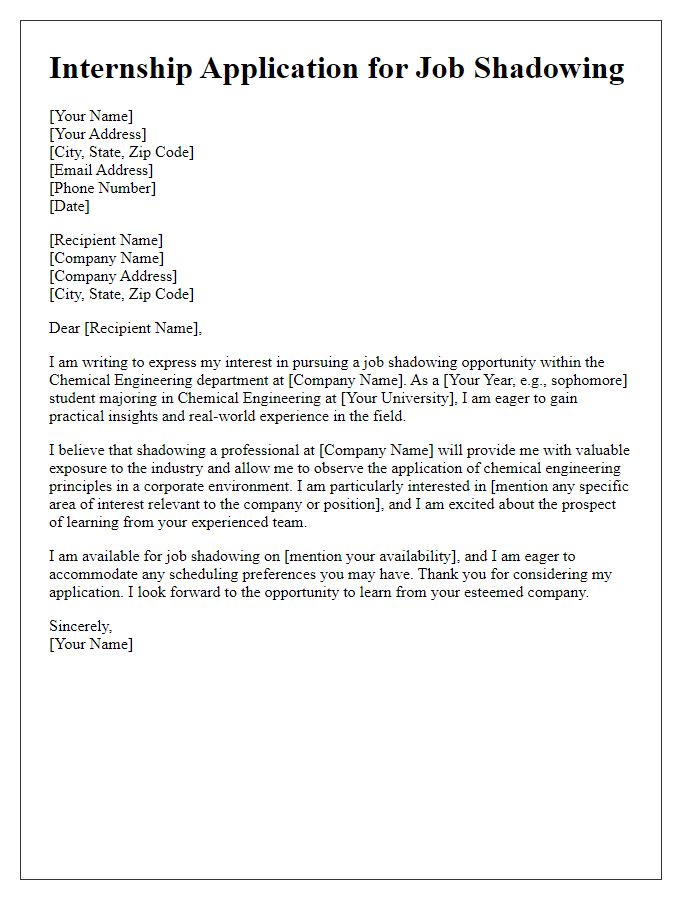


Comments